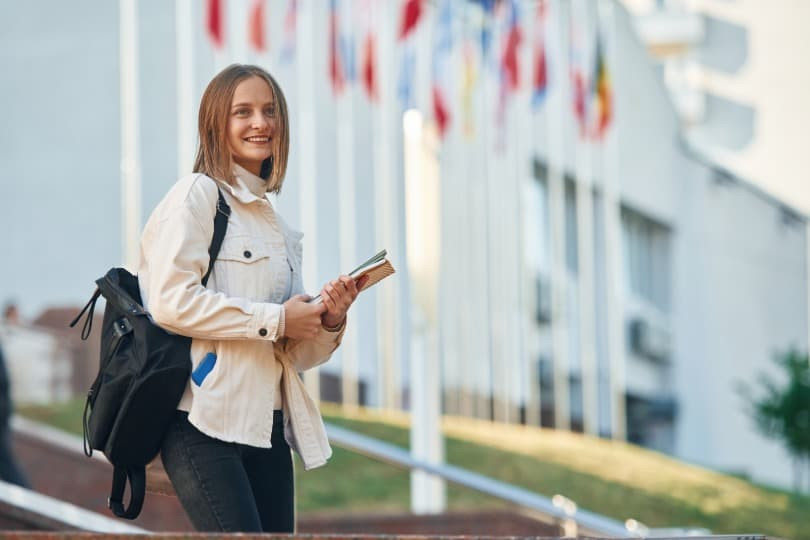Three quarters of principals of elementary and secondary schools disagree with the elimination of ninth grades in elementary schools. Every second principal even has a "very negative" opinion on it. The Ministry of Education and some members of parliament are discussing plans to abolish the ninth grade. Only one in ten principals would support the plan. This emerged from a survey conducted in June 2023 by GTS Alive among 500 principals of elementary and secondary schools across the country. GTS Alive also issues and manages ISIC and ITIC student and teacher cards. The survey also showed that principals have very little time for the pedagogical guidance of their teachers. Only one in ten manages to devote enough time to it.
“Principals also expressed their views on cooperation with the founder, that is, the municipality or region. Four-fifths rated it positively, so there is no problem here. However, principals are annoyed by frequent changes at the Ministry of Education and the fact that every minister comes with new visions different from his predecessor. So before they manage to motivate the teaching staff for a certain concept, everything has already changed again,” said Radek Schich, director of GTS Alive.
Some school principals also expressed dissatisfaction with the current form of inclusion. Three quarters rate it as rather negative or very negative. Only one in ten principals has a positive opinion. On the other hand, principals of both elementary and secondary schools are relatively satisfied with the current content of the Unified Entrance Exam for secondary schools. It is worse with its procedural and organizational form, where negative evaluations prevail.
The Ministry of Education can be relatively satisfied with how principals view the content and goals of Strategy 2030+, which the ministry considers a key document for the development of the Czech Republic’s education system in this decade. The vast majority of principals rate this document neutrally. Positive and negative evaluations are fairly balanced. Principals rate the upcoming “middle support level” even slightly better, which should help reduce non-teaching and administrative burdens. According to their opinion, these burdens are currently huge.
The survey also asked principals for their opinion on the role of non-governmental organizations in Czech education. More than one-third rate this role neutrally. Among the rest, negative evaluations (37 percent) significantly outweigh positive ones (7 percent).
Principals also had the opportunity to state in what ways their school stands out positively and could serve as inspiration for others. Common answers included a good atmosphere and relationships at school, an individual approach to students, activity in obtaining grants and preparing projects, zero bullying, and rich extracurricular activities. Activities mentioned by rural small multi-grade schools were particularly interesting — they often use their school’s family environment for closer contact with students and parents, joint events with the community, and overall greater school openness.
Many principals organize above-standard activities contributing to the school’s attractiveness and good climate. For example, matriculation ceremonies, farewell events for ninth graders, fairs, overnight stays at school, focus on the wellbeing of students and teachers, exercises with elements of tai chi and yoga to develop graphomotor skills. Some schools follow a different path, for example completely abolishing bells or focusing on the concept of a free democratic school, emphasizing relationships and constructive conflict resolution. Or they introduced a phone-free school, have a private operator run their cafeteria, and have a school cinema hall. One secondary school operates a combined teaching method with four days of in-person classes and one day of self-study.
The survey included 500 school principals from all 14 regions of the Czech Republic. Sixty percent were from elementary schools, followed by grammar schools, vocational secondary schools, and vocational training schools.
Notes for editors:
GTS Alive s.r.o. in the Czech Republic issues and manages ISIC student cards and ISIC Scholar pupil cards, ITIC teacher cards, and, to a lesser extent, other cards. The company was founded in August 2000. Its predecessor in the Czech Republic was GTS International. GTS Alive s.r.o. is part of the international GTS Alive Group, headquartered in Prague, with branches in seventeen countries on four continents.
GTS Alive, through the ISIC PORT chip identification system, also provides many elementary and secondary schools with secure access to their buildings and an electronic attendance system. The company also facilitates travel or accident insurance for students.
For more information, contact:
Jan Šimral, media representative of GTS Alive
Tel.: +420 737 944 370
E-mail: info@jansimral.com






